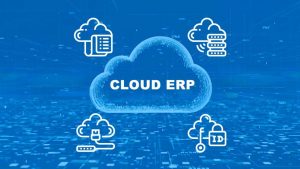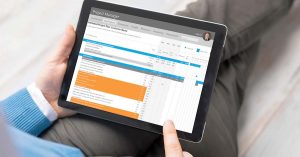Analysis Of ERP Systems – The cornerstone to integrating vital business operations throughout a company is an enterprise resource planning system. The broad deployment of ERP systems demonstrates the significance of ERP to successful enterprises.
ERP has entered the common business technology language. ERP systems have a more extended history than you might think—they’ve been around for nearly 60 years. However, ERP systems have gone through multiple generations and several names.
Today, we’ll look closely at how these erp implementation services work and what benefits they can give.
A Brief History of Analysis Of ERP Systems
To comprehend how erp software evolved into the vital system it is today, it is helpful to look back at how this software has changed through time.
I: The 1960s: Early MRP Systems
Manufacturing firms needed a mechanism to manage, measure, and regulate their expansion in the 1960s. Inventories were overflowing, making it difficult to keep track of what they had and what they needed. As a result, software engineers developed the first material requirements planning (MRP) solutions. These fundamental technologies enabled businesses to monitor many aspects of their operations at each stage, from original procurement to final delivery.
II: The 1970s to 1980s: MRP Advancement
MRP systems became sleeker and more complex during the next two decades. They also became more feature-packed. Manufacturing companies needed software to handle their demands, including scheduling and production. These newest platforms were more comprehensive, allowing managers greater visibility into all aspects of their supply chain. This alteration resulted in a new name. Manufacturing resource planning solutions, or MRP II, replaced material requirements planning solutions.
III: The 1990s: First ERP System
MRP and MRP II systems were primarily used in manufacturing from the 1960s to the 1980s. All of that altered in the 1990s. Companies in different industries began to look at the software and ask how it could be used for their requirements. Instead of requiring manufacturing control, these businesses wanted to automate departmental responsibilities like sales and accounting. As the platform’s concept evolved, Gartner was the first firm to refer to the new platforms as enterprise resource planning (ERP) systems.
IV: Today: Fully Integrated for Modern Enterprises
ERP systems are now fully linked to support the modern, forward-thinking organization. They can streamline and simplify practically every business operation your firm performs regularly. ERP solutions built to handle specific industries and specializations are available in addition to general ERP capability. Most answers can also be configured or customized to fit your business requirements.
Benefits of ERP Software and Analysis Of ERP Systems
During the ERP decision process, it is critical to understand the features you require and how they may improve your business. Let’s look at some of the essential advantages of enterprise resource planning adoption.
- From inventory levels to monthly sales figures, ERP systems are capable of generating real-time reports.
- The advantages of ERP software include the ability to access what you need quickly. Their actions aren’t dependent on an update from another department.
- ERP systems automate and integrate most core business processes so employees can use input, edit, and share data confidently.
- Using an ERP system makes it possible for managers to see how departments work together. This way, they can see how one workflow feeds into the next and how each participant facilitates this process.
In Summation,
We hope now that you have a better understanding of how the enterprise resource planning system work. It is a type of enterprise software that can streamline and automate your core business processes. As it evolved over the years, it’s shifted from a system built solely for the manufacturing sector into a platform from which all companies can benefit.
Are you interested in learning more about how an ERP system can transform your business? Contact our ERP selection consultants at Connected IT Consulting below for a quick consultation.
ERP Project Management
Business Process mapping
Small Business ERP
ERP Consulting



